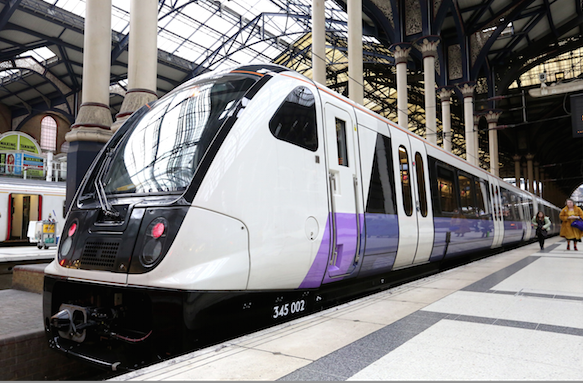Crossrail: TfL to run Paddington to Reading trains from December

Transport for London (TfL) will start running services between Paddington and Reading from this December, which will become part of Crossrail when it opens from 2021.
TfL Rail will replace GWR as the operator of the services, with four trains per hour at peak time and two at off-peak.
Read more: Crossrail shares progress pictures at key Elizabeth line stations
Passengers will also be able to pay using contactless from January 2020, when fares will go up by 2.8 per cent.
Crossrail, also known as the the Elizabeth Line, will stretch from Heathrow and Reading in the west to Abbey Wood and Shenfield in the east and increase capacity in London by 10 per cent. It was due to open last December but that has been moved to a five-month window between October 2020 and March 2021.
A number of issues around train software, signalling and construction have seen the £17.6bn project – the largest in Europe – dogged by delays.
Alongside the TfL rail services, GWR will continue to run some fast services from Reading, Twyford, Maidenhead and Slough to Paddington.
Howard Smith, operations director for TfL Rail, said: “Starting TfL Rail services to Reading is another step towards opening London’s new railway, the Elizabeth line. Customers will see staff at every station, and improvements being made to stations along the route including the installation of lifts to provide step-free access, they will also be able to enjoy the convenience of pay as you go contactless payments all the way to Reading.”
Earlier this month it was revealed that Crossrail could end up needing an extra £400m in a worst case scenario and open later in 2021.
Read more: Crossrail could need extra £400m and open behind schedule, bosses warn
While Crossrail bosses have insisted that the project remains “on track” to open in the scheduled timeframe, they also warned that there was “still a high level of uncertainty” in the programme which could force it to ask for emergency funds.
One risk impact assessment carried out by Crossrail estimates that the project could need a funding injection of £42m, while another, more extreme risk assessment finds that it could need an extra £394m.